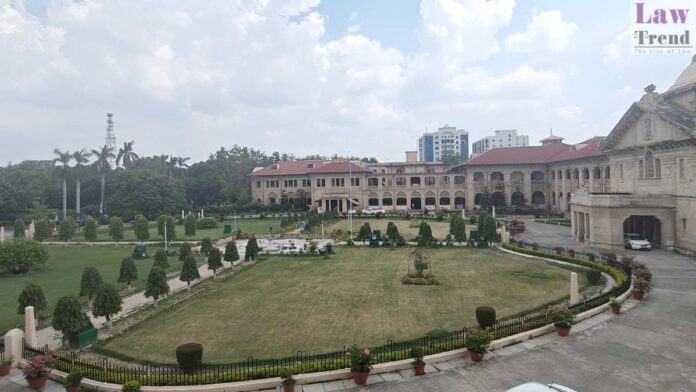Reaffirming the sanctity of religious freedom while drawing a clear line against coercive practices, the Allahabad High Court has held that the Indian Constitution does not support forced or fraudulent religious conversions. The observation came as Justice Vinod Diwaker rejected a plea seeking quashing of an FIR against four persons accused under the Uttar Pradesh Prohibition of Unlawful Religious Conversion Act, 2021.
The accused were alleged to have attempted to convert individuals to Christianity by offering money and free medical treatment — acts the court deemed serious enough to warrant police investigation.
Citing Article 25 of the Constitution, which guarantees the right to freely profess, practise and propagate religion, the court emphasized that this freedom is conditioned by considerations of public order, morality, and health.
“The use of the word ‘freely’ in Article 25 underscores the voluntary nature of religious belief and expression,” the court noted, adding, “However, the Constitution does not endorse forced or fraudulent conversions, nor does it shield coercive or deceptive practices under the guise of religious propagation.”
The court stressed that the protection of religious freedom must not come at the cost of societal stability or individual autonomy. “The presumption that one religion is inherently superior to others clearly presupposes the moral and spiritual superiority of one religion over another. Such a notion is fundamentally antithetical to the idea of secularism,” the court observed.
Justice Diwaker clarified that Indian secularism demands equal respect for all religions and requires the State to maintain a principled equidistance from every faith.
Referring to the 2021 law enacted by the Uttar Pradesh government to prohibit unlawful religious conversions, the court explained that the legislation aligns with constitutional principles by seeking to deter conversions carried out through misrepresentation, force, undue influence, coercion, allurement, or marriage used as a tool for conversion.
“By targeting such methods, the law seeks to prevent exploitation and manipulation that could have broader destabilising effects on social harmony, besides disruption of law and order,” the court noted.
The judgment also addressed an important legal question: whether a police officer qualifies as an “aggrieved person” under Section 4 of the 2021 Act, which typically limits complaint-filing rights to victims or their close relatives. The court clarified that the station house officer (SHO) can file FIRs in such cases, especially when the provision is read alongside the Bharatiya Nagarik Suraksha Sanhita (BNSS), which empowers police to act in cognizable offences.
The court’s order reaffirms that while religious liberty is a cornerstone of the Indian Constitution, it cannot be misused to justify deceitful or coercive conversions — a line that must be vigilantly maintained to uphold secularism and communal harmony.




